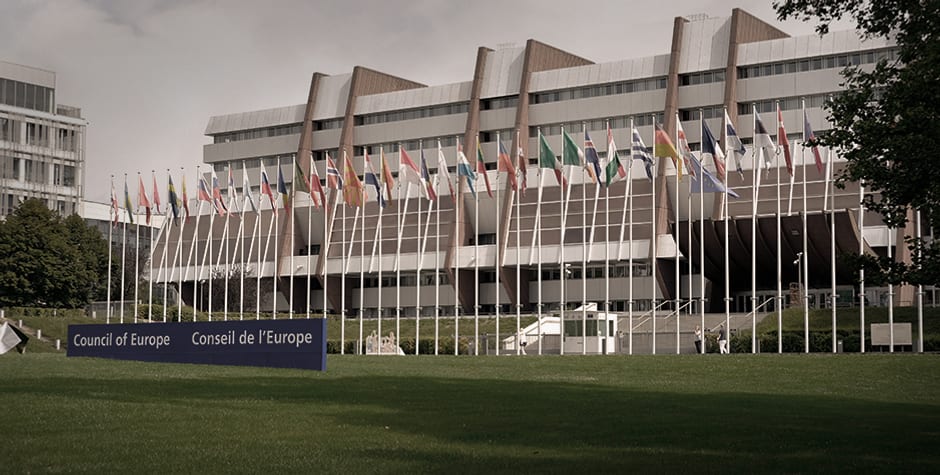The Council of Europe’s Partnership With the Hamas-Dominated Palestinian Parliament
On October 11th, the Parliamentary Assembly of the Council of Europe (PACE) held a debate on the “Escalation of violence in the Middle East following the recent Hamas attack on Israel,” with the participation of an Israeli Member of the Knesset and a Member of Parliament (MP) from the “Palestinian Legislative Council.” Israel is an “Observer” to the Assembly, while the Palestinian Authority has the status of “Partner for Democracy.”
Some 20 members of the Council of Europe asked to speak and took the floor to clearly condemn the Hamas terrorist attack and reiterate Israel’s right to defend itself. On the right, Hungarian MP Zsolt Németh reiterated that “terrorism is a common enemy of both Israel and Europe” and said he was “praying for the victims” of the Hamas attack. Spanish MP Pablo Hispán denounced the “speeches from the extreme left that intend to justify the terrorist acts of Hamas” out of “antisemitism.”
In fact, the far-Left political group at the Council of Europe was conspicuous by its silence: None of its members took the floor.
The “Partner for Democracy” Status
For its part, the ACLJ’s international affiliate, the European Centre for Law and Justice (ECLJ), sent a letter drawing the MPs’ attention to the “Partner for Democracy” status enjoyed by the Palestinian Legislative Council since 2011.
The Palestinian Legislative Council is the unicameral parliament that governs Arabs living in Judea and Samaria (the so-called “West Bank”). It is chaired by MP Abdel Aziz Dweik, a member of Hamas. Of its 132 members, 74 are also Hamas members, i.e., the majority. These members were elected in 2006, and the Palestinian Authority has not held legislative elections since.
Article 64 of PACE Rules defines the prerogatives of “Partners for Democracy.” This status gives the Palestinian Legislative Council the right to send a delegation of parliamentarians to the Council of Europe at each plenary session. They have the right to speak at the Assembly, to take part in committee meetings, to make proposals concerning the agenda, to sign motions for resolutions and recommendations and written declarations, and to participate in the work of the political groups.
In other words, a “parliament” in which Hamas has a majority has the status to officially influence the Council of Europe.
In PACE, however, the Palestinian Legislative Council is represented by members from other Arab political parties: Fatah, the Democratic Front for the Liberation of Palestine, and the Popular Front for the Liberation of Palestine. The latter, Hamas, is considered a terrorist organization by the European Union.
A Draft Resolution To Be Submitted Soon
Following ECLJ’s initiative, a group of parliamentarians is now working on a motion for a resolution to withdraw the Palestinian Legislative Council’s “Partner for Democracy” status. The procedure promises to be lengthy, requiring several reports from Council of Europe parliamentary committees, but it is the only mechanism for achieving this objective.
The parliamentarians’ motion for a resolution should succeed if PACE were to apply its own rules. Indeed, the status of “Partner for Democracy” presupposes compliance with several conditions that are not fulfilled by the Palestinian Legislative Council. In particular, a “Partner for Democracy” must embrace the values of the Council of Europe (notably human rights), abolish capital punishment (Hamas has always carried it out, legally or otherwise), and organize free and fair elections (which has not been done since 2006).
However, this motion for a resolution will come up against the President of PACE, the far-Left Dutch MP Tiny Kox. He has the power to decide on the follow-up to any motion for a resolution. He can therefore prevent any parliamentary discussion on the subject. In the past, the ECLJ has observed the extent to which Tiny Kox, as President of PACE, has marginalized parliamentary initiatives of which he did not approve: motions for resolutions closed without follow-up, opaque filtering of written questions, or even bans on conferences.
Moreover, Tiny Kox, before becoming President of PACE, promoted the idea of granting the “Palestinian Authority” the status of “Partner for Democracy” (Resolution 1830 (2011)). He drafted the parliamentary report in support of this project, holding meetings with Hamas representatives, including the President of the Palestinian National Council.
Tiny Kox, who initiated the partnership between the Council of Europe and the Palestinian National Council, will be in charge of the future of this partnership.
Mrs. Ben-Ari’s Speech From the Knesset
During the debate on October 11th at the Council of Europe, many members of PACE were moved by the intervention of Meirav Ben-Ari, who represented the Knesset, the Israeli parliament.
Unlike the representative of the Palestinian National Council, Meirav Ben-Ari was unable to visit the Council of Europe in Strasbourg. She spoke by videoconference from her car. Mrs. Ben-Ari was on her way to a funeral. It was the fourth time since the Hamas terrorist attack that she had buried the children of her friends.
In her speech, Meirav Ben-Ari warned Europeans: “The world sees the true face of this radical Islam. It is a battle between good and evil. Civilization and barbarism. Self-defense and aggression. This is a battle that has also arrived on your doorstep.”
This article was authored by Nicolas Bauer, Research Fellow at the ECLJ.
